“What is this spherical silver item that opens up to reveal a fixed metal plate with small holes in it?”
Answer: “This is an English muffin dish — you fill the bottom with hot water and have a fire underneath to keep it hot, and the muffins go in the top and the steam keeps them hot and delicious.”
“An object found in the kitchen of a relative, about 18” long. Its puck-shaped end is heavy, solid metal."
Answer: “It is a salamander. You heat it up in a fire or with a torch until it is red hot, then use it to brown or toast things, like steaks, bread, crème brûlée, etc.”
“Heavy metal, found in a collection of old kitchen things”
Answer: “The clipper-looking utensil is for cracking lobster, nut, and crab shells, while the thinner utensils are to guide out the meat from within the shells.”
“What is this plastic kitchen gadget?”
Answer: “To help with these cans that have a tab, you stick the hook under the tab to help it lift up.”
“Any idea why this ceramic bowl has a slot?”
Answer: “It’s an egg separator. They work very well if the hole is cut properly. Crack a whole egg into the cup/bowl, and then tip it over a container to catch the white as it pours out of the slot. The yolk, if not broken, will stay neatly in the separator.”
“Found this in a kitchen utensil box at a thrift store. Any idea what this oddly beautiful object is for?”
Answer: “That is a soap swisher. You can put a solid bar of soap (or many scraps of soap) in the cage portion and swish it around in the water, creating soapy water for washing dishes and such.”
“Possibly a kitchen tool, some sort of spatula with bent ends and a plastic handle, found in Germany”
Answer: “It’s a honey server. The hook on the side keeps it from slipping into the honey pot.”
“2 rows of metal semicircles in a line that open and close with a hinge and wooden handle.”
“What is this metal kitchen device with a spring-loaded set of rings used for?”
Answer: “Poached eggs — drop it in boiling water, crack eggs in it, then lift the little handle to get them out in a nice shape.”
“What is (the intended use of) this oddly shaped silver spoon?”
Answer: “It’s a spoon to measure dried tea and bring it from the box into the pot. Was commonly used from the late 1700s to the mid-Victorian period.”
"Probably a kitchen tool..."
“A round wooden pressing mechanism from the old kitchen, it appears to have a lead pattern on the bottom.”
Answer: “It is a butter press. The mark would indicate, on market day, whose butter you were buying. Women usually made and sold butter as a means of earning some money.”
“The turquoise part spins and that opens and closes the metal triangles. There’s some Japanese writing, I think, in the symbol.”
Answer: “It’s a thing to cut out flowers from eggs.”
“A metal bar cage that opens and closes, found in the kitchen during Thanksgiving. No idea what it is. Help!”
Answer: “It’s a stuffing cage for birds.”
“This item in our kitchen? We’re not quite sure what it is.”
Answer: “It’s a pastry cutter.”
“A 5-prong wooden comb-like object about the size of my hand, could it be a comb? A scratcher? A kitchen utensil?”
Answer: “Salad claws/tosser”
“These have been in our kitchen drawer for ages, but we haven’t figured out what they are used for.”
Answer: “The green one opens bananas.”
“The blue one on the right is for sure an orange peeler by being a beaver. With the tooth on the front, you can cut lines in the outer shell of the orange and with the beaver tail you can kind of scrape the peel off.”
“A kitchen utensil I’ve had forever, I just don’t know what it does or how to use it.”

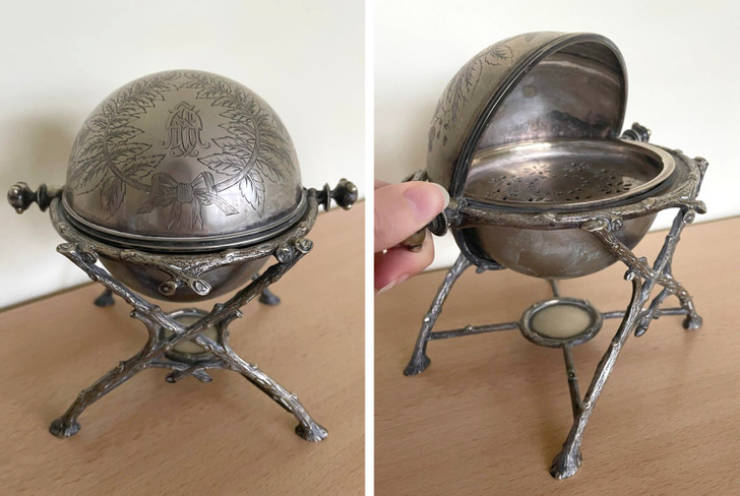
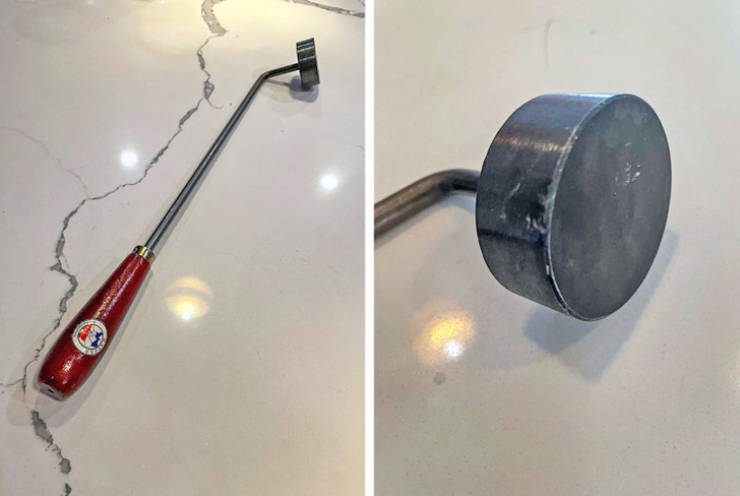
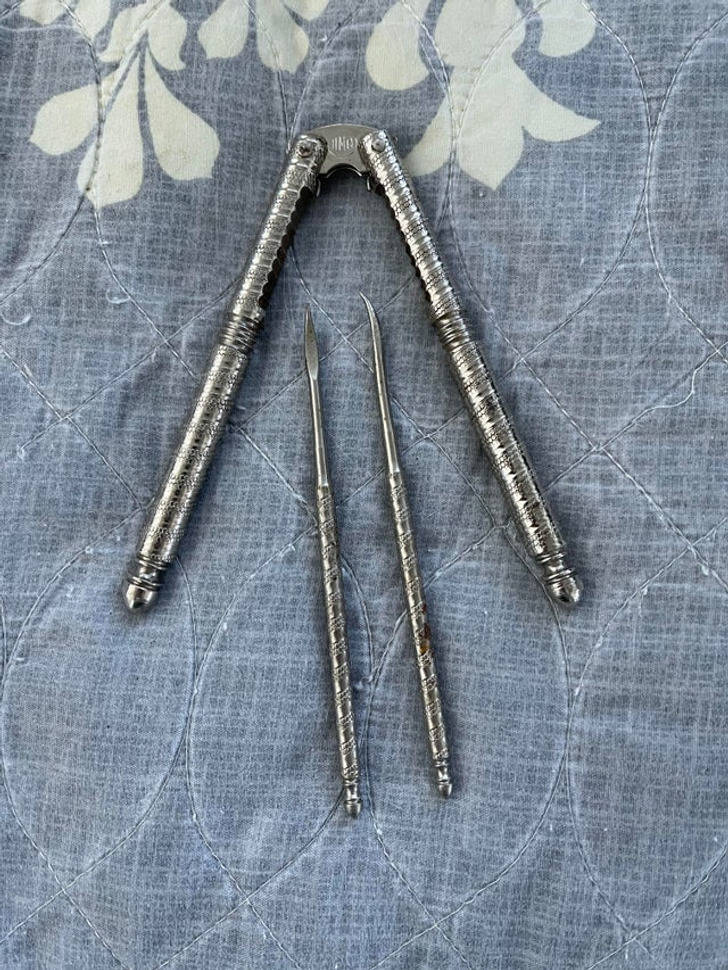
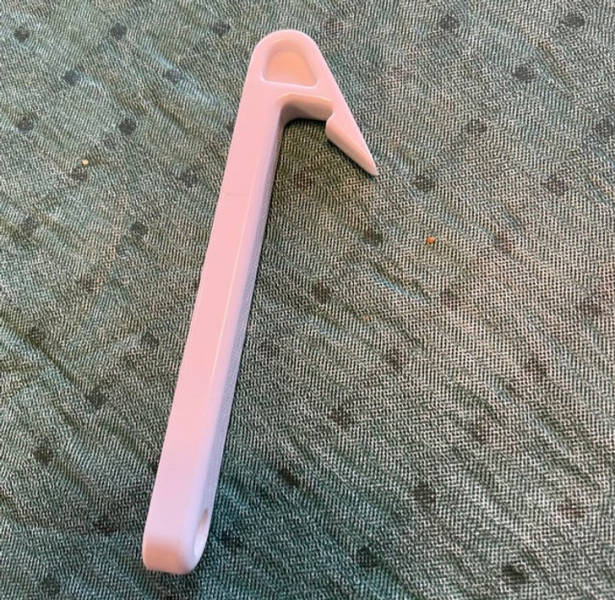
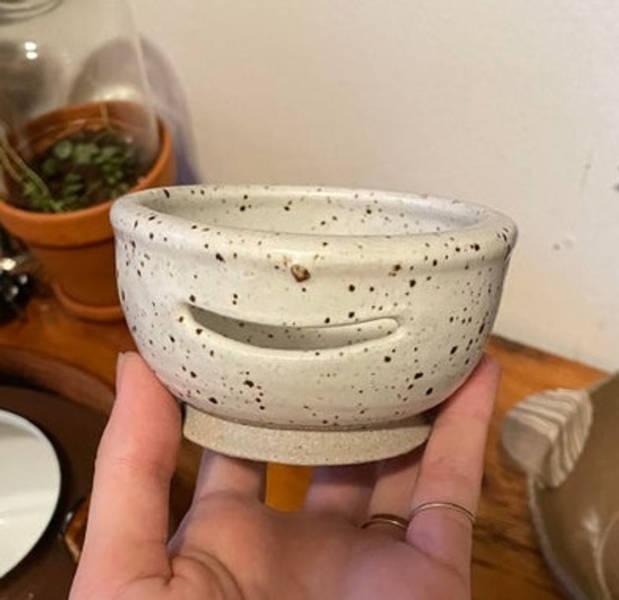
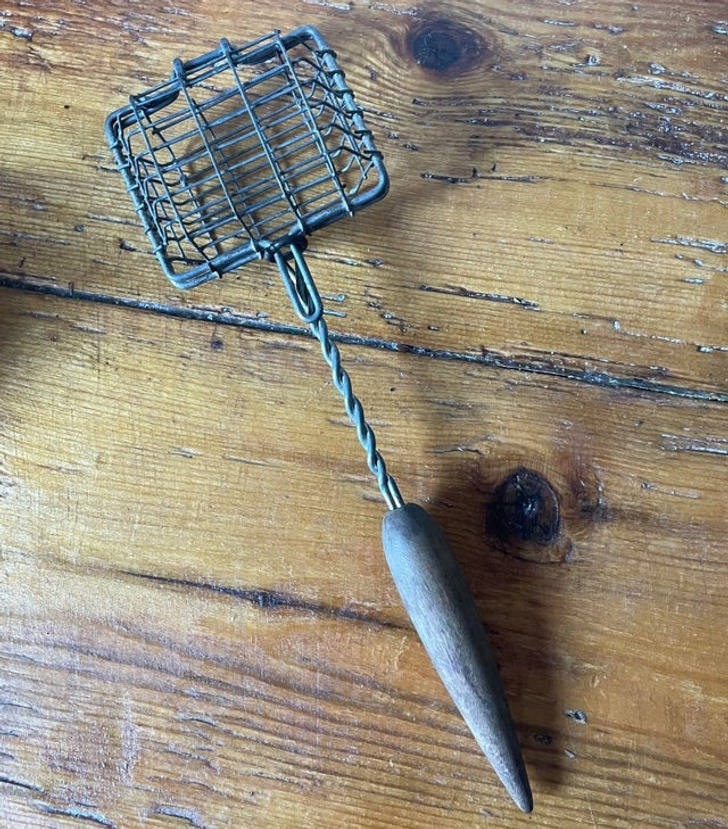
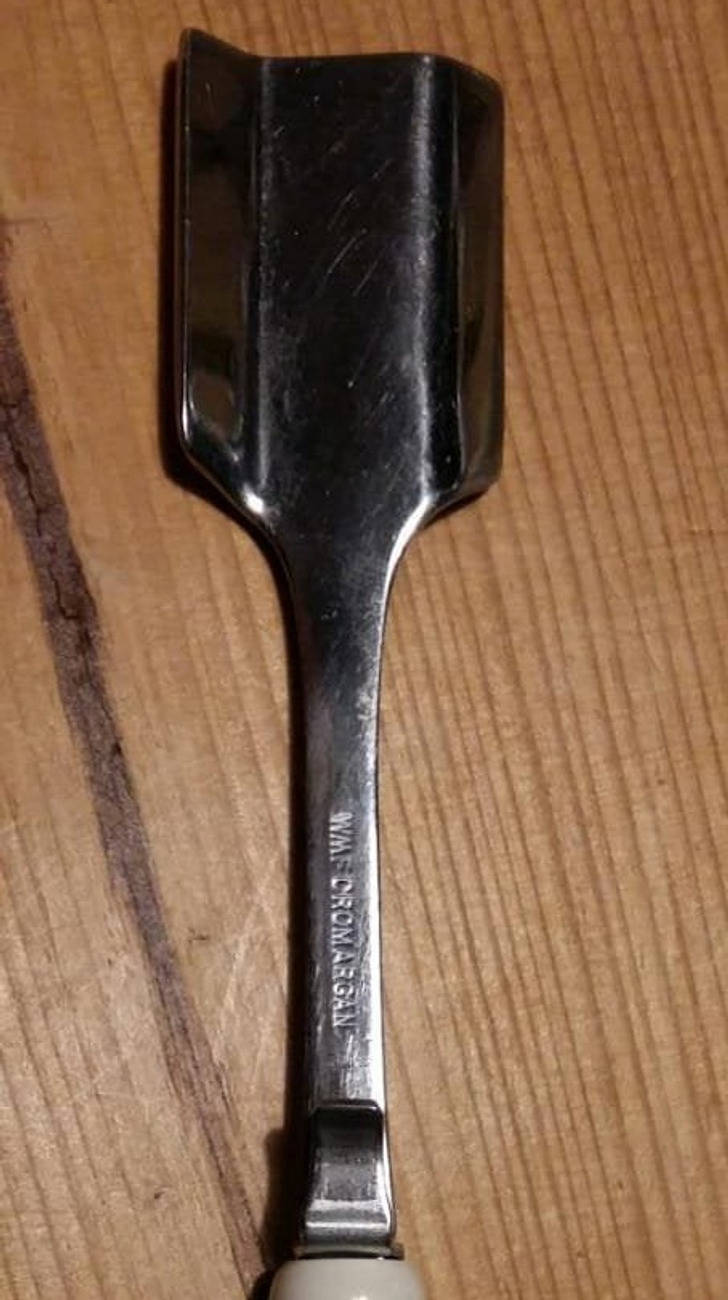
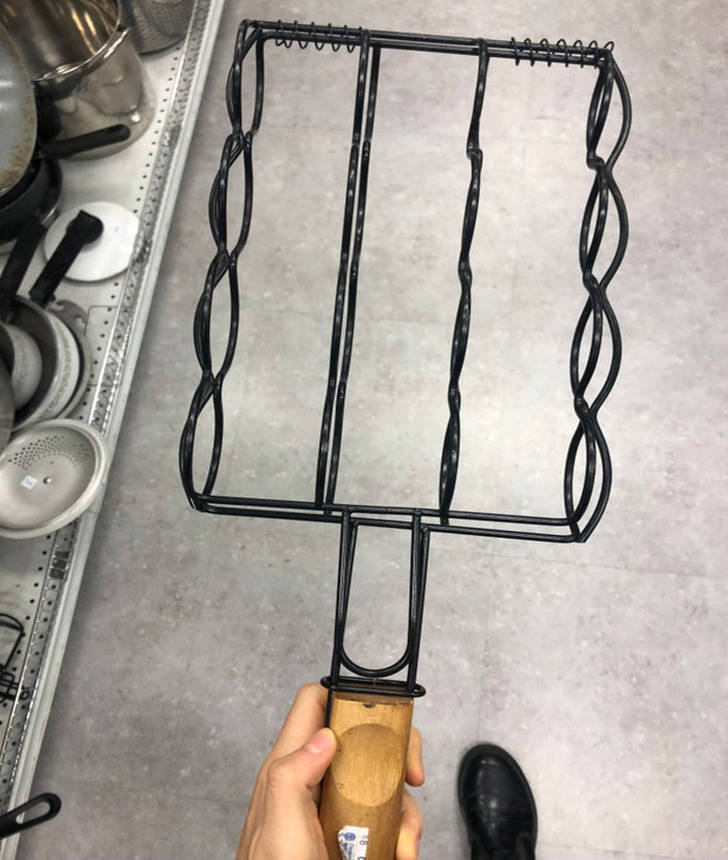
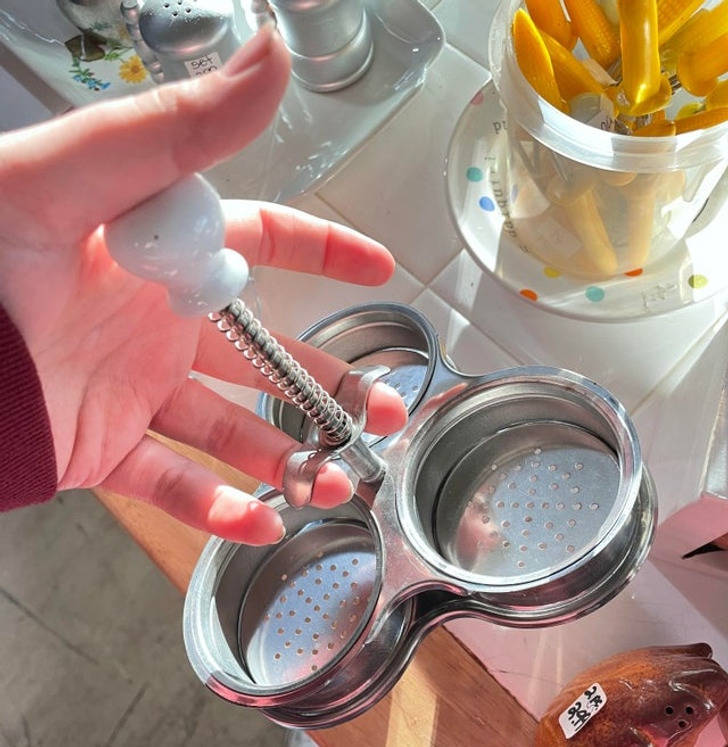
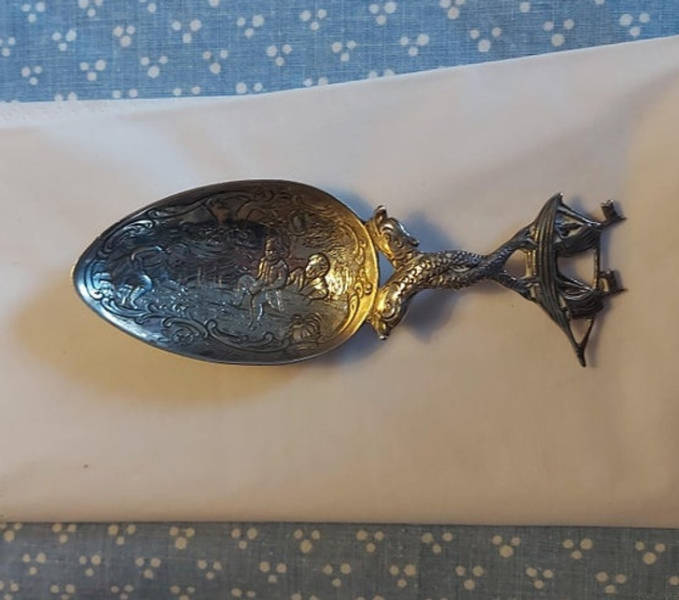
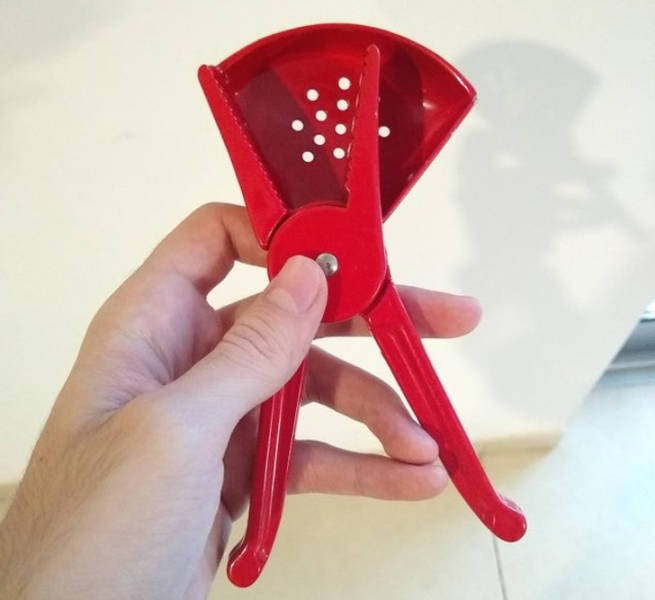
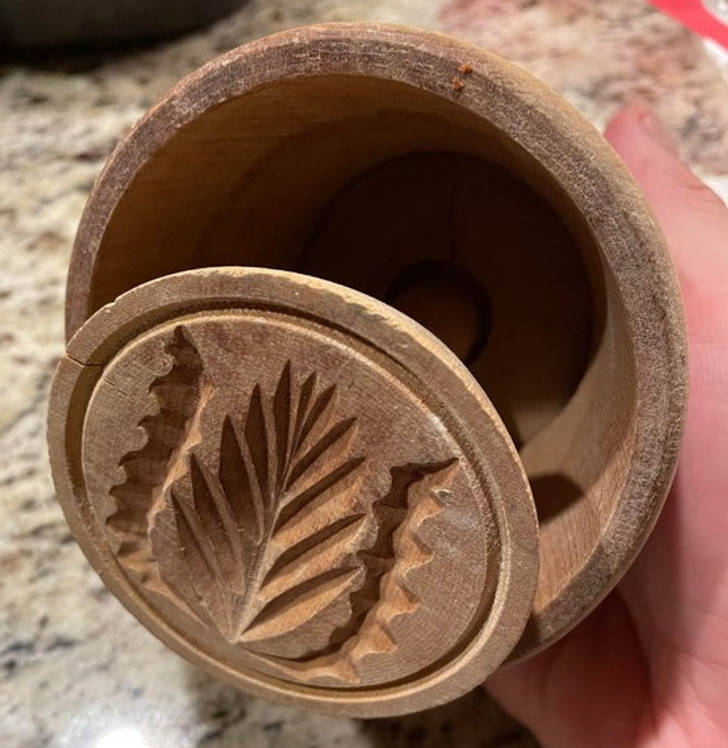
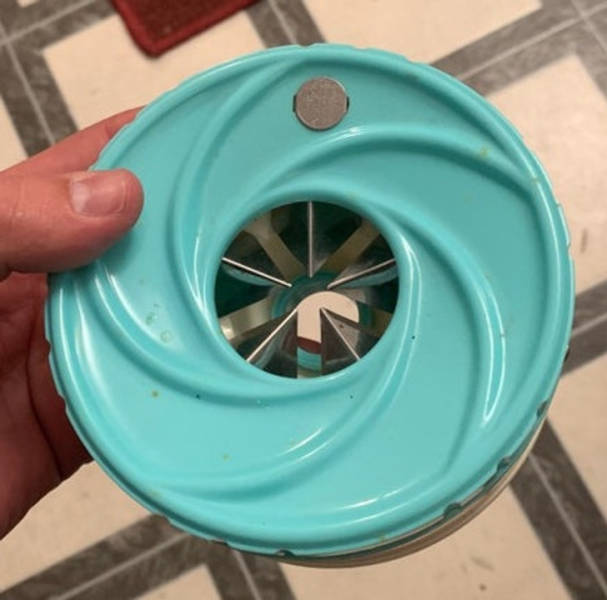
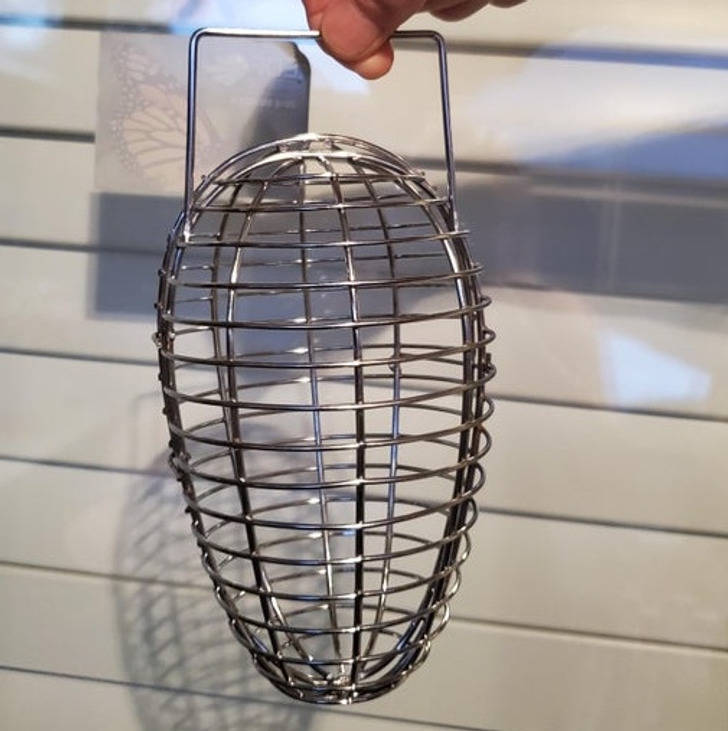
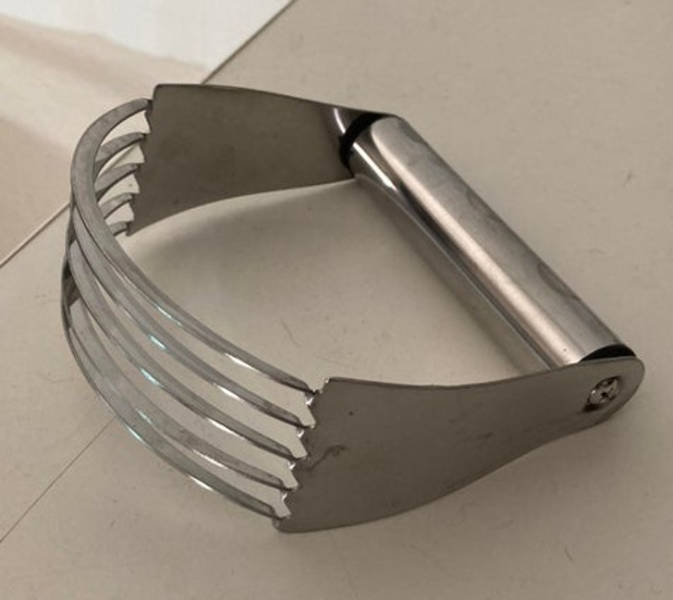
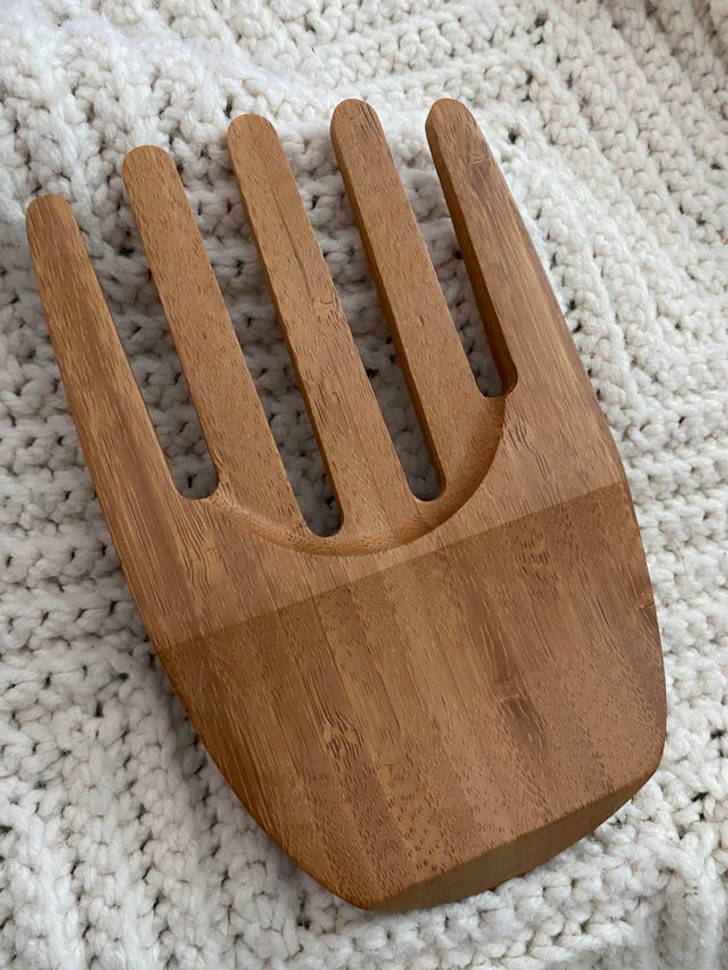
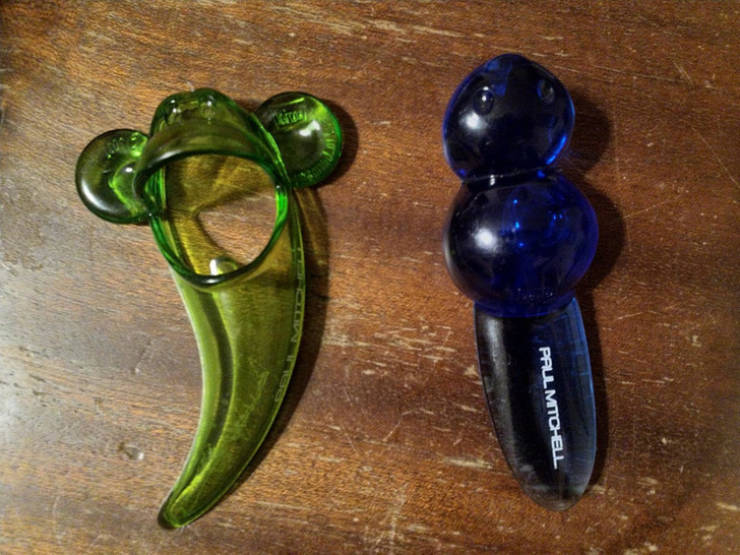
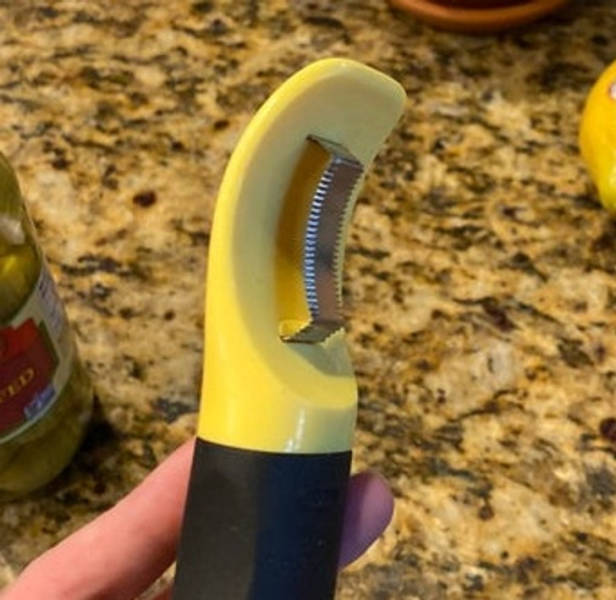



Corn Remover. Cut the kernels from the cob.
It's for both. Also good for squeezing citrus, cracking eggshells, and breaking bones. Not everything has ONE purpose.
It's both, and good on crab... although with lots of crab/lobster consumed a person gets good enough not to need anything but teeth.